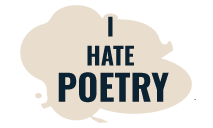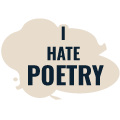Want to be up to date with the latest in all things rhyme and verse? Who is making waves in the seas of metaphor and simile? What are the best new poems (and poets!) that you should be checking out this year? – well look no further.
The End of Crisis by Cindy Juyoung OK
When you leap over the deer carcasses
that line every garden, you will marvel
at their tidiness, at how bloodless a death
by drought can be. When I crawl through
the highway pieces shattered by heat,
I will admire the clean slits as I kick
aside crumbles of broken stone with little
blistering. When you thread between
the overtaken shores and bodies of elders,
frozen, when I follow the fallen saplings’
directions toward the horizon where
colorless sky and earth meet, we will
remember rippling at the birthday parties
for corporations and framing the ash
of beloved photos burnt in wildfire. When
we think of crossing the river to each
other, you from the gorge of the landslide
to me at the crest of the typhoon, it is then
we will find ourselves in a dead imaginary,
in some fictive past where the you exists,
where I is not a myth we use to keep
surviving at the cost of bird and glacier,
home and tenderness. Having ruined
the future of becoming fossils, finally
we will know that it is for nothing we
die, never in place of drowned sea
turtles or swarming locusts, or to foil
cancerous sand and mold, not even for
the dance of subway floods or the graceless
eclipse of all our promises and planets.
Bringing focus upon the inconvenient environmental truths that haunt the future of our planet, Cindy draws the audience in with macabre descriptions of an Earth in ruin. What I love is how the speaker does not present this as merely a problem for the young caused by the elderly (as is such an easy assumption to fall into in this modern age) but they unite young and old in lines 8-10 through the metaphor of trees. This personification of the trees invites the audience to identify with the other organisms that inhabit this planet that are not human. This expertly highlights that global warming is a problem for every living thing on the planet. The poem unnerves the audience as the depiction of the destroyed planet is both tragically horrifying and descriptively beautiful in its telling. There is a fascinating post-human element to this poem from lines 18-23, which describes the self in the past tense; not only are humans extinct but the idea of the self is presented as a myth that fuels our species’ sense of individuality at the cost of the planet. The most harrowing line is when the speaker declares ‘finally we will know that it is for nothing we die.’
Check out more of Cindy Juyoung OK here: https://www.poetryfoundation.org/poets/cindy-juyoung-ok


